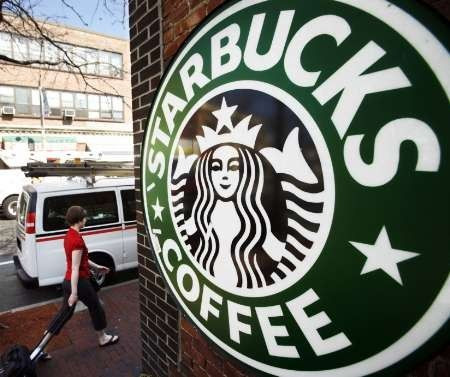Dunkin' Donuts vs. Starbucks: Starbucks Leads the Scorecard
Analysis

One day this week Dunkin' Donuts wowed Wall Street with an IPO that shot up 40 percent on the first trading day. The next day Starbucks wowed Wall Street with big quarterly profits and plans to grow its business in China.
Starbucks' stock jumped too, rising more than two percent in after-hours trading on the news and approaching a 52-week high.
But before the week ends, it's time to look behind the curtain of the two global coffee and convenience food chains to analyze the differences.
Thus, here's a scorecard comparing Starbucks and Dunkin' Donuts:
Same-Store Sales
The winner is Starbucks. The company is currently growing sales at stores open for more than one year at a rate of seven to eight percent. Dunkin' Donuts grew in 2010 at a rate of just more than two percent at stores open more than one year.
Global Strength
The winner is Starbucks. Company CEO Howard Schultz says sales at Starbucks stores in China open more than one year are growing at a rate of 30 percent. Starbucks plans to double its number of stores in China, parlaying the strong brand into rapid growth. Starbucks says it will double its existing 800 stores in China over the next four years.
"The hardest part," said Schultz, "is to make sure you do not become white hot, and then all of the sudden out of favor."
Dunkin' is global too, and has plans for more expansion, but the company is following a "steady" track, and it doesn't have the same brand cache that Starbucks does. Dunkin' has fewer than 100 stores in China, and just recently passed the 3,000 mark for Dunkin' stores outside the United States.
Also, Starbucks thinks it can reach 1,000 stores in Brazil though it currently has less than 100.
Domestic Growth
This one is a toss up, because it depends on how well Dunkin's aggressive U.S. growth plans play out. Starbucks says there's more opportunity for new-store growth in the U.S., and the company plans to open 200 or more stores in the next year. "For anyone to conclude that the U.S. market is reaching a level of saturation for us, I think would be a wrong conclusion," Schultz said.
Dunkin' plans to add 500 stores or more per year in the U.S., more than doubling its roughly 7,000 U.S. locations by the end of the decade. But more is not always better. The quality of growth will determine the winner in this category.
Organizational Strength
The winner is Starbucks. Howard Schultz has done a leadership job at Starbucks that can be compared to what Steve Jobs has done at Apple. When the company got out of whack, he right-sized it, focusing on core strengths and re-energizing the troops from the ground floor up.
Also, Dunkin' is primarily a franchise company. Starbucks doesn't franchise stores. Thus, Dunkin' has less control of how its stores are run. Customers of large chain stores want to get the same quality experience each and every time, no matter where they are, and Dunkin' has a major disadvantage in this category.
Pricing
Dunkin' is the winner, and that is an advantage with some customers in an economic downtown, though Starbucks is the company growing same-store sales at a decent clip, not Dunkin'.
A general rule of thumb is that pricing can be overcome with quality customer service, because what you are paying for makes all the difference. Technically, Dunkin' coffee is cheaper, so it gets the nod, but with customer service factored in, Starbucks gives Dunkin' a good run for its value pricing.
Menu Diversity
Dunkin' is the winner simply because many of its Dunkin' Donut stores are also paired with Baskin-Robbins ice cream stores, since Dunkin' group also owns the Baskin-Robbins chain. But Starbucks' has improved its menu as of late, and it is reaching to an entirely demographic than ice cream and donuts.
So while Dunkin' may win on diversity of product because of Baskin-Robbins, Starbucks probably still has the most redeeming menu from a profitability and sustainability perspective.
© Copyright IBTimes 2024. All rights reserved.




















